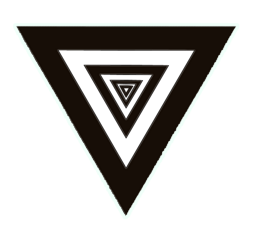The Hegelian Dialectic is a philosophical framework that explains how opposing forces drive change.
At its core, the dialectical process relies on conflict between opposing forces, leading to a synthesis.
Hegelian after Georg Wilhelm Friedrich Hegel.
“The truth is the whole. The whole, however, is merely the essential nature reaching its completeness through the process of its own development.” – Georg Wilhelm Friedrich Hegel, The Phenomenology of Spirit (1807)
Hegel (1770-1831) was a German philosopher who made significant contributions to the fields of metaphysics and epistemology.
His system, known as absolute idealism, posits that reality is ultimately a unified, rational whole.
At the heart of Hegel’s philosophy is the concept of the dialectic, a process of problem and reaction that drives development.
Dialectical refers to a dynamic and iterative exchange between two or more opposing forces, that leads to various degrees of transformation. It revolves around conflict.
First, a thesis is proposed, followed by a contradictory antithesis.
Through the conflict and reconciliation of these two opposing ideas, a higher level emerges, resulting in the synthesis.
__
Some definitions are due:
Dialectic
Discussion and reasoning by dialogue as a method of intellectual investigation.
Specifically : the Socratic techniques of exposing false beliefs and eliciting truth.
Investigation of the eternal ideas.
The logic of appearances and of illusions : the logic of fallacy -Kant.
The Hegelian process of change in which a concept or its realization passes over into and is preserved and fulfilled by its opposite.
The critical investigation of this process.
Development through the stages of thesis, antithesis, and synthesis accordance with the laws of dialectical materialism
The theoretical application of this process especially in the social sciences
Any systematic reasoning, exposition or argument that juxtaposes opposed or contradictory ideas and usually seeks to resolve their conflict :
a method of examining and discussing opposing ideas in order to find the truth
__
This conflict/resolution method can manifest in various forms, including social, economic, narrative story telling, as well as in personal symbolism.
The contradictions and tensions between opposing forces are not independent, but rather catalysts for predetermined goals.
Ultimately it’s undeniable that in both life and fiction conflict is necessary for change.
The dialectical process is a mechanism that perpetuates itself through the collision of seemingly opposing forces. Progress is merely a byproduct of cyclic creation/ destruction .
References:
Hegel, G. W. F. (1817). The Science of Logic. Translated by A. V. Miller. London: George Allen & Unwin.
Hegel, G. W. F. (1807). The Phenomenology of Spirit. Translated by A. V. Miller. Oxford: Oxford University Press.

Step into the Fray: Vels Rift Runners
Support Indie Art - Buy dope gear, fuel the fire. Step into the fray with these bold, edgy, fearless kicks. Check'em Out Today!

